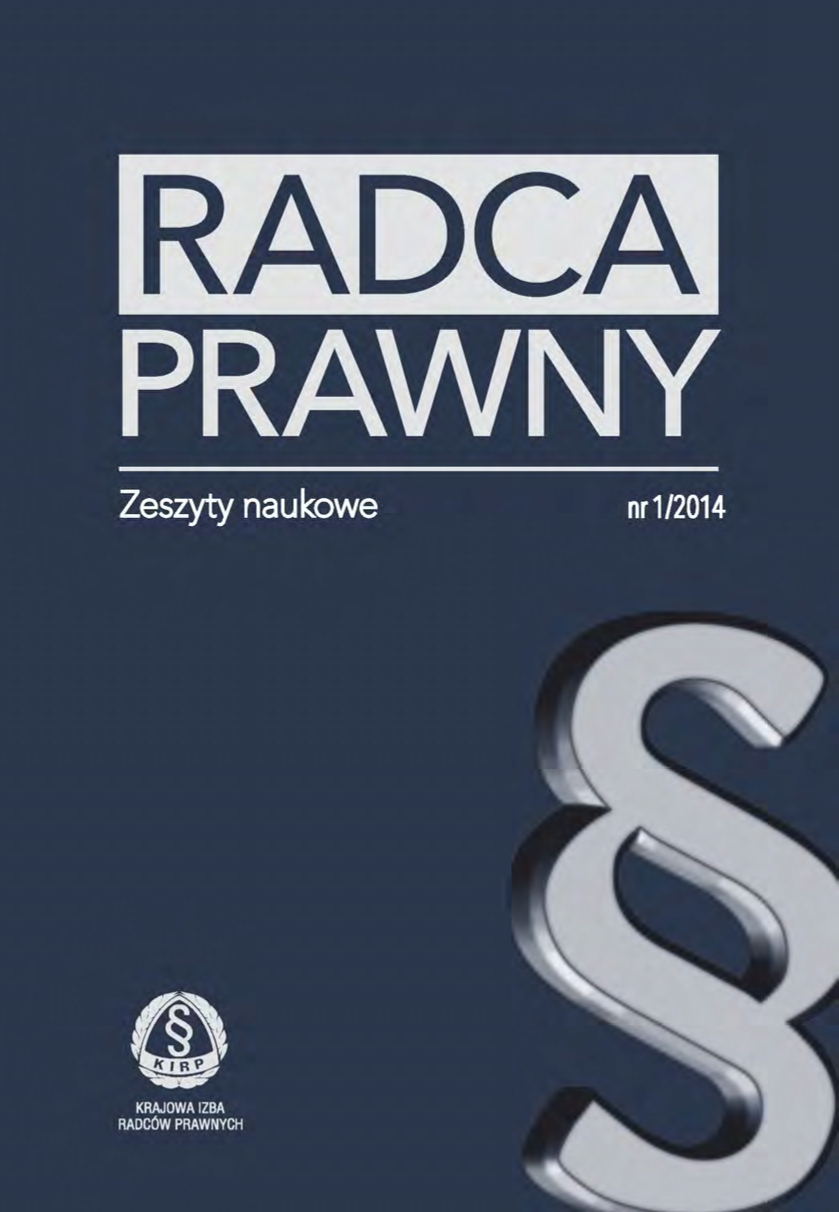Znaczenie opinii prawnej kancelarii dla kwalifikacji zachowań rynkowych przedsiębiorstw. Wyrok Trybunału Sprawiedliwości UE z 18 czerwca 2013 r.
The significance of legal advice from law offices in evaluating the market behavior of business enterprises. Judgment of the Court of Justice of the European Union of 18 June 2013
Author(s): Robert StefanickiSubject(s): Civil Law, Law on Economics
Published by: Krajowa Izba Radców Prawnych
Keywords: legal advice; professional diligence; cartel; anti-competitive agreements; sanction in the form of a fine
Summary/Abstract: The area of competition law of the European Union is characterized by a considerable degree of complexity, inadequate precision in formulating grounds for the infringements of the law, and incoherence concerning goals that are to be served by its implementation. Undoubtedly, this situation has contributed to the difficulties in evaluating the market behavior of entrepreneurs who enter into agreements in order to gain a stronger market position. Due to the change in methodology regarding the application of the competition rules introduced by Regulation No. 1/2003, business entities conducting economic activity are charged with the responsibility to assess their market behavior – particularly when concluding agreements – from the point of view of legal requirements. These circumstances in a sense create the necessity to seek legal expertise from professional law offices. The issue of the significance of the legal advice to the assessment of the market behavior of an enterprise in respect to its compliance with competition law (art. 101 of the TFEU) has recently been considered in the interpretative judgment handed down by the Court of Justice of the European Union. In the judgment, the Court held that art. 101 of the TFEU should be construed to mean that an enterprise that finds itself in violation of the law cannot escape the imposition of a fine where the violation has resulted from an erroneous assessment of compliance with regard to the conduct it has engaged in on account of the terms of legal advice or a decision issued by a domestic competition authority. The Court of Justice found that the fact that the enterprise in question erred in assessing the lawfulness of its conduct cannot preclude the imposition of a fine for the offence committed, due to the fact that the enterprise could not have been unaware of the anticompetitive character of the agreements it concluded. The import of the contribution to the body of judicial decisions and the development of the doctrine made by the judgment of the Court of Justice of 18 June 2013 is particularly evident in the attempt to evaluate the significance of legal advice on the basis of which entrepreneurs engage in and continue particular conduct on the market, against the requirements stemming from competition law. The Court held that the reliance on legal advice from a law office does not exempt entrepreneurs from applying standards of professional diligence to a careful description of the scope of services they provide, or utilizing other avenues to validate concluded agreements’ compliance with competition law. Without a doubt, this judgment will contribute to the sparking of a wider discussion, a more in-depth approach to the function of legal advice, and, as a consequence, to the fostering of trust in legal professions.
Journal: Radca Prawny. Zeszyty Naukowe
- Issue Year: 2014
- Issue No: 1
- Page Range: 133-152
- Page Count: 20
- Language: Polish

